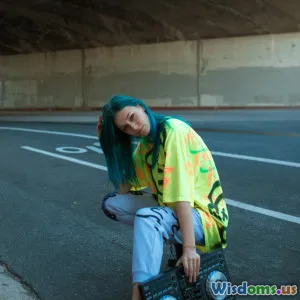
The Impact of Fashion on Society
6 min read Explore how fashion influences culture, identity, and social norms in our society. (0 Reviews)
The Impact of Fashion on Society
Fashion is often viewed as a superficial aspect of life, primarily concerned with aesthetics and trends. However, its influence extends far beyond the fabric of clothing; it deeply affects cultural identity, social dynamics, and even economic structures. In this article, we will explore how fashion impacts society in various dimensions, shaping and reflecting the world around us.
1. Fashion as a Cultural Mirror
Fashion serves as a reflection of cultural values and societal trends. Historical movements, such as the flapper era of the 1920s or the punk movement of the 1970s, showcase how clothing styles can embody the spirit of their times. For instance, the adoption of bold patterns and vibrant colors during the 1960s was a response to the counterculture and a desire for freedom and expression.
Moreover, fashion often highlights cultural identity. Traditional garments, such as the kimono in Japan or the sari in India, not only represent individual cultures but also foster a sense of community. In multicultural societies, fashion becomes a means of expressing one’s heritage, thereby promoting diversity and inclusivity.
2. The Role of Fashion in Social Identity
Fashion plays a crucial role in shaping individual and collective identities. Clothing choices can signal social status, group affiliation, and personal beliefs. For example, professionals often wear business attire to convey authority and competence, while youth subcultures might adopt specific styles to assert their identity and differentiate themselves from mainstream society.
This phenomenon is particularly evident in social media, where influencers and celebrities shape trends that millions aspire to replicate. The rise of platforms like Instagram has democratized fashion, allowing individuals from all walks of life to participate in and contribute to fashion dialogues. However, this also creates pressure to conform to certain ideals, which can lead to issues around body image and self-esteem.
3. Fashion and Economic Impact
The fashion industry is a significant economic driver, contributing trillions of dollars to the global economy. Jobs in fashion span from design and retail to marketing and manufacturing, affecting millions worldwide. However, the economic impact of fashion is complex. Fast fashion brands, known for their quick production cycles and low prices, have made clothing more accessible but at a high environmental cost. The exploitation of workers in developing countries raises ethical concerns about sustainability and labor rights.
Conversely, the rise of sustainable and ethical fashion brands is reshaping the industry, promoting eco-friendly practices and fair labor conditions. Consumers are becoming increasingly aware of the implications of their purchasing decisions, leading to a shift toward more responsible fashion consumption.
4. Fashion as a Tool for Social Change
Fashion has the power to drive social change and raise awareness about important issues. Designers and brands increasingly use their platforms to advocate for social justice, environmental sustainability, and body positivity. Campaigns that promote inclusivity, such as the plus-size movement and the push for gender-neutral clothing, challenge traditional norms and encourage acceptance.
Additionally, fashion weeks and high-profile events often serve as stages for activism. The 2017 Women’s March featured countless participants wearing “pussy hats,” symbolizing solidarity and resistance. Such movements highlight how fashion can unite individuals around a common cause, making it a powerful tool for social advocacy.
Conclusion
The impact of fashion on society is multifaceted, influencing cultural identity, social dynamics, economic structures, and social change. As we navigate an increasingly interconnected world, understanding the broader implications of fashion becomes essential. It is not merely about what we wear but how those choices reflect and shape our values and beliefs. By recognizing the power of fashion, we can engage more thoughtfully with our clothing choices and their implications, fostering a more inclusive and sustainable future for the industry.
Rate the Post
User Reviews
Popular Posts





















